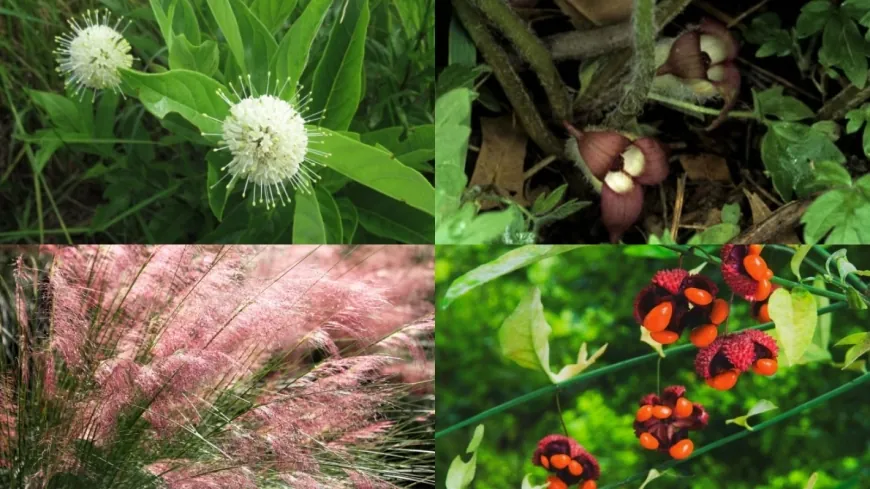Virginia Department of Conservation and Recreation suggests native alternatives to invasive plants

RICHMOND, Va. (WRIC) -- Looking to swap out invasive plants in your yard for native species? The Virginia Department of Conservation has some suggestions.
Native plants are defined as those that grow in the region in which they evolved, meaning they are uniquely adapted to local conditions, according to the department. These species often are better suited than non-native plants to resist drought, insects and disease.
Invasive species are those that are introduced by human activity into an area where they didn't evolve and cause harm to natural resources, so making swaps may help limit this harm to ecosystems.
The department said the state's invasive plant list includes 13 additional species, including the four below. The following are the department's recommended swaps:
Buttonbush instead of butterfly-bush
According to the U.S. Fish and Wildlife Service, buttonbush is a native wetland shrub with white spherical flowers enjoyed by many pollinating insects. Birds eat its seeds and mammals eat its twigs.
If you live in the Coastal Plain region of Virginia, the department recommends also considering planting Virginia sweetspire.
Strawberry bush instead of nadina
Strawberry bush, also referred to as 'hearts-a-bustin' are common in the Coastal Plain and Piedmont regions, though rarer in the mountains. They're often enjoyed by deer.
The department also says additional options for the Coastal Plain region include wax myrtle, inkberry and winterberry.
Wild ginger instead of Italian arum
Wild ginger flowers grow toward the base of the plant with its leaves shading them. The U.S. Department of Agriculture said its flowers evolved this way to attract small pollinating flies that emerge from the ground in early spring.
The department also recommends considering jack-in-the-pulpit and hairy alumroot.
Pink muhly grass instead of fountain grass
Pink muhly grass is perennial and is mostly found in dry, usually rocky areas, including woodlands and clearings. They're particularly found in the outer Piedmont and Coastal Plain areas, according to DCR.
The department also recommends considering purple lovegrass.

 VENN
VENN 





